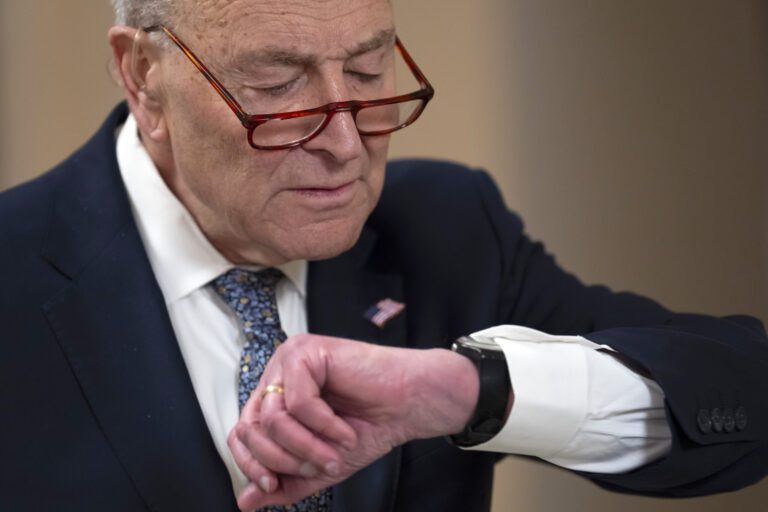Democrats Tackle Government Funding Dilemma Amid GOP Rescission Concerns
As the September 30 deadline approaches for government funding, Democrats are grappling with how to handle an impending financial showdown. With the threat of Republicans potentially reneging on previous bipartisan agreements, tensions are high over critical funding issues.
The Stakes of the Funding Negotiation
Recent attempts to defund programs like foreign aid and public broadcasting have left Democrats feeling burned and skeptical about Republican intentions. Senator Chuck Schumer finds himself in a tight spot, reminiscent of a similar situation earlier this year when his party faced a partisan spending bill.
- Key Date: September 30 marks the deadline for government funding for the fiscal year.
- March Showdown: In a prior instance, almost all House Democrats opposed a GOP-backed bill to keep the government funded.
Schumer’s Dilemma
In March, Schumer voted in favor of a procedural motion that allowed a Trump-backed spending measure to pass. This move resulted in a swift and unfortunate decline in his popularity among Democratic constituents, with one GOP senator likening him to “a certain venereal disease” on social media.
Current Situation: Trust Issues
Fast-forward to today, Democrats fear history may repeat itself. The GOP’s recent use of rescissions has raised alarms. This legislative process allows Republicans to reclaim previously allocated funds without needing the Senate’s 60-vote threshold.
- Senator Tim Kaine’s Concerns:
- "I want to do a deal, but I just want to do a deal with somebody who won’t undo it five minutes after we vote for it,” Kaine remarked, showing his lack of confidence in the GOP’s reliability.
The Bipartisan Dilemma
Senator Schumer highlighted the complications introduced by the GOP’s unilateral actions. “We Democrats want a bipartisan deal," he stated at a press conference. "But the bottom line is, Republicans are making it much harder."
Key Quotes:
- Schumer on Rescissions: "You can’t say you want a bipartisan process…and at the same time put rescissions on the floor, which is the antithesis of bipartisan."
- Senator John Cornyn’s Response: "Get over it. There are gonna be more rescissions packages coming, and there should be."
Reevaluating Trust
While some Republicans, like Senator Thom Tillis, empathize with their Democratic colleagues’ skepticism, they also emphasize the need for cooperation. "If they do a rescission on something that was foundational to a prior year-end spending agreement, then you’re not gonna get those folks’ support," he said.
The Forecast for Rescissions
The White House’s budget director, Russ Vought, has indicated that multiple rescissions bills will likely be introduced soon. This legislative strategy is mandated to be drafted by the administration, requiring Congress to act within a specific timeframe.
- Vought’s Assurance: "We want to see how this first bill does. This is the first of many rescissions bills."
Moving Forward
As negotiations continue, both parties must weigh the benefits and risks of their strategies. With suspicions clouding bipartisan cooperation, the road ahead for funding agreements is fraught with challenges.
Key Points to Watch:
- The upcoming government funding deadline of September 30.
- Potential rescissions that may alter the landscape of previously agreed-upon funding.
- The need for both parties to establish trust to facilitate effective negotiation.
In this pivotal moment, the focus is on whether Democrats can find common ground with Republicans, or if divisions will lead to another government funding crisis. The stakes are high, and the outcome may set the tone for future legislative efforts.
For more insights on government funding and bipartisan negotiations, visit Congress.gov and GovTrack.us.


